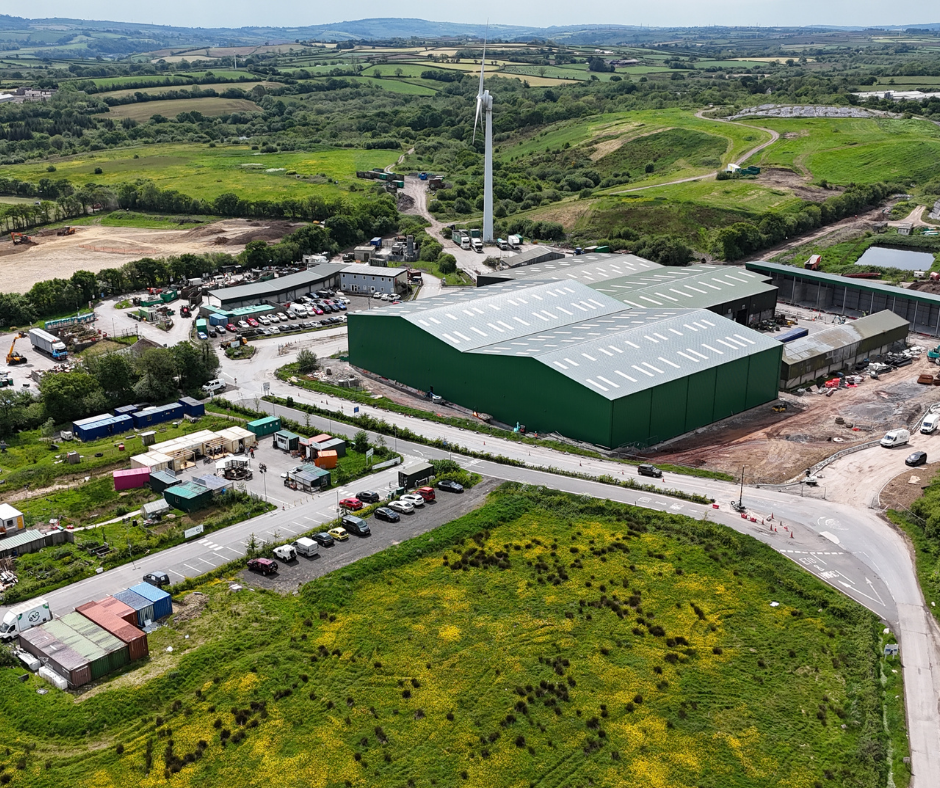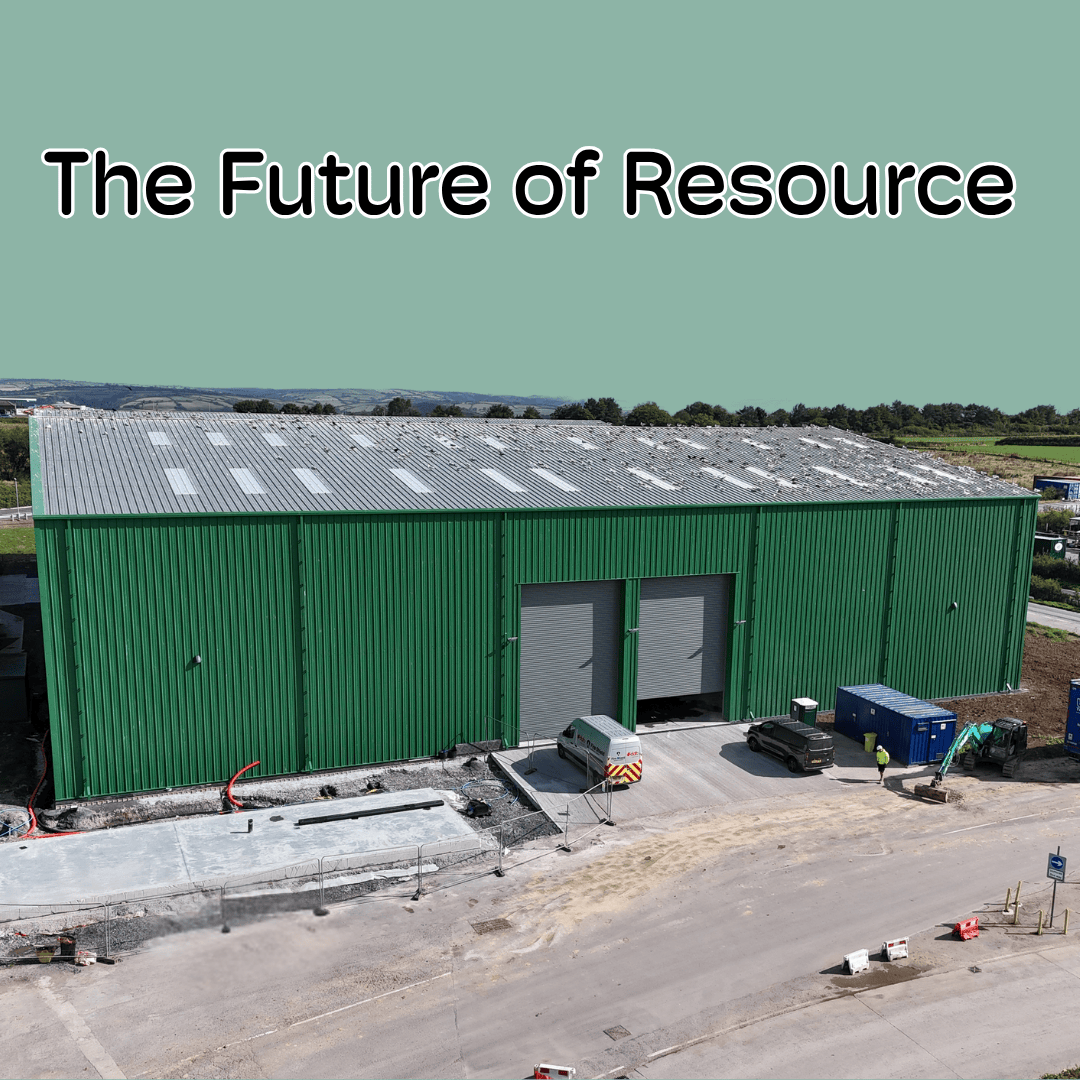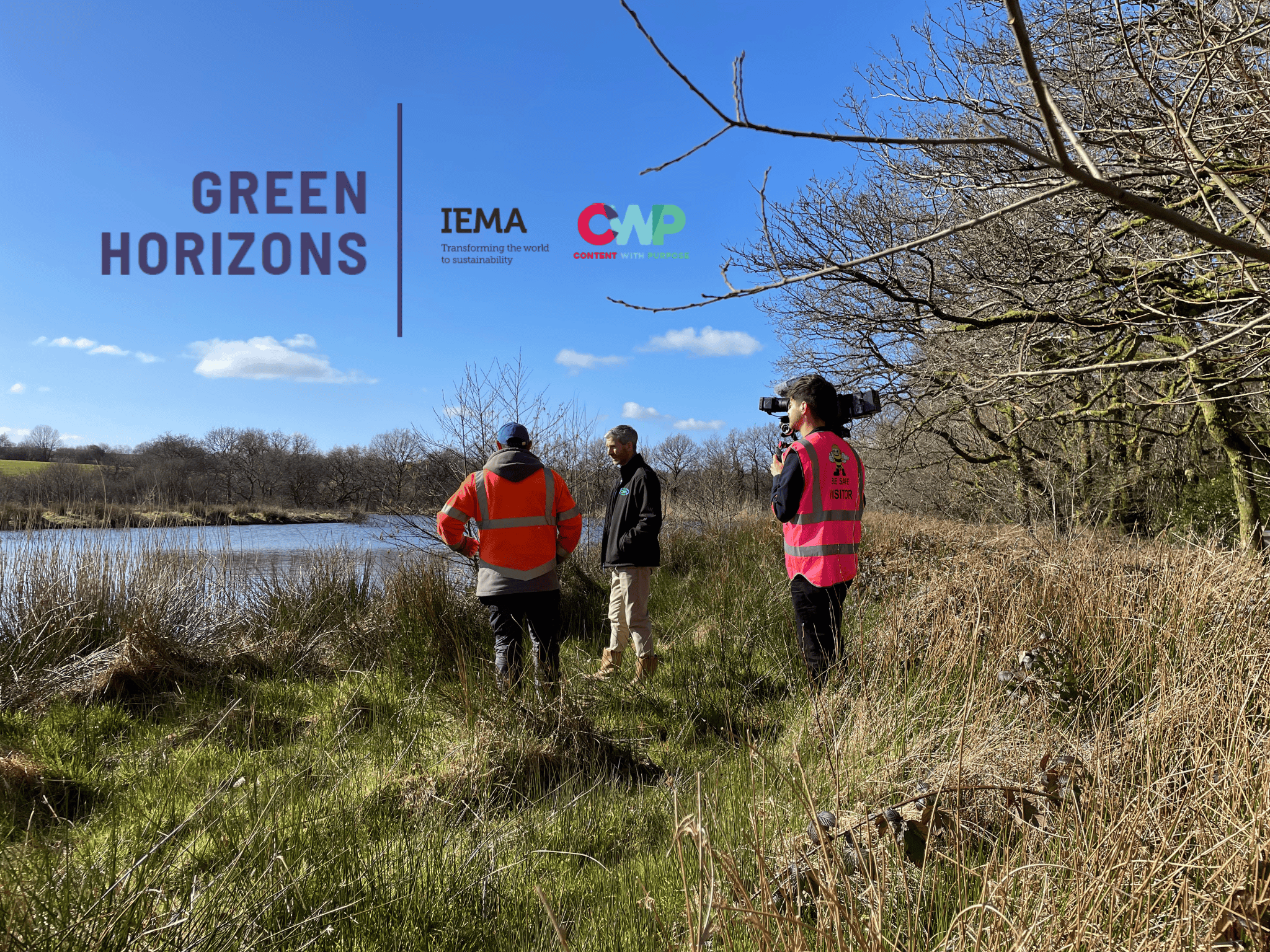Have you ever wondered what happens to your black bags?
Delving into the waste management process of Carmarthenshire, uncovers an intricate system that ingeniously converts black bag waste into a valuable resource. The journey takes place at CWM Environmental’s Materials Recycling Facility in Nantycaws, where a series of advanced techniques and processes are harnessed to maximise the potential of the waste.

Upon arrival, the black bags undergo a rigorous sorting process on a conveyor belt. After passing through a machine called a bag splitter where paddle’s rip open the bags. The first stage involves the use of a trommel, a large rotating cylindrical screen, which effectively separates items like broken glass from the waste stream.
Following this, a magnetic over band belt comes into play. It utilises its magnetic properties to extract steel cans and other magnetic materials, contributing to the separation of recyclables.
An Eddy Current System (ECS) is the next key player. This technology utilises magnetic fields to repel non-ferrous metals like aluminium cans, causing them to be separated from the waste stream. Manual sorting by skilled workers further refines this process, ensuring that as much recyclable material as possible is recovered.
The waste that remains undergoes shredding, reducing it to a specific size that is manageable for further processing. The shredded material is then fed into a large twin ram baler, where it is compacted into tightly bundled packages ready for transportation.

These bundles, instead of being destined for a landfill, find their purpose as a valuable energy source. They are transported to Energy from Waste (EFW) plants, where through controlled combustion, they generate power that serves thousands of households.
It’s important to note that not all items belong in the black bag waste stream. Lithium-ion batteries and gas bottles, for instance, should never be disposed of in this manner. These items not only pose a risk to the environment but also jeopardise the health and safety of our team. Proper disposal methods for these hazardous materials should be followed to ensure a safe and sustainable waste management process.
In this video captured in 2021. A gas bottle was incorrectly put into a back bag resulting in the gas bottle exploding. Thanks to the fast reaction of our team who are trained on what to to do in these situations the fire was extinguished and no injuries where reported. This video highlights the importance of disposing items such as gas bottles and lithium ion batteries safely.
Even the by-products of this energy generation are not wasted. The ash, known as bottom ash, is collected and repurposed. It finds a second life in the tarmac industry, contributing to road resurfacing and minimising waste.
Carmarthenshire’s waste management process is a well-orchestrated blend of technology and manual effort. It extracts the maximum value from black bag waste, converting it into energy and reusable materials, all while minimising its impact on the environment.
Our latest posts
-
CWM Environmental Marks a Year of Record Growth, Community Impact, and Circular Innovation
CWM Environmental has concluded 2025 with a series of significant achievements in the circular economy.
-
Nantycaws Resource Recovery Facility Enters Key Phase in Circular Economy Infrastructure Development
The Nantycaws Resource Recycling Facility (RRF) has reached an exciting new phase. The first phase of the build is now complete, marking significant progress in the creation of one of Wales' most advanced pieces of circular economy infrastructure.
-
CWM Environmental Featured in IEMA’s Green Horizons: A Workforce Fit for Tomorrow
CWM Environmental is proud to be a featured partner in Green Horizons: A Workforce Fit for Tomorrow, an inspiring digital series created by the Institute of Environmental Management and Assessment (IEMA) in collaboration with Content With Purpose.



